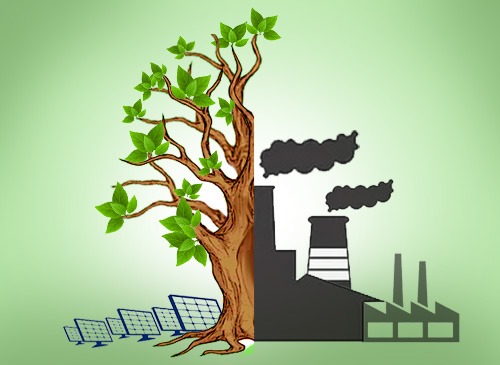Gone are the days when environmental and social consciousness were alienable factors in the field of business. The global situation today has concretized a symbiotic relationship between business development and socio-environmental sustainability. In addition to the apparent moral and ethical factors that have driven this growth, there is a lesser-known reality when it comes to social and environmental consciousness in businesses. There is a direct correlation between the environmentally sustainable and socially inclusive approaches of business and its economic growth. SMEs play a major role in this context.
SMEs make a major contribution to the GDP as well as employment of the nation, especially when informal businesses are taken into account. Entrepreneurs behind these SMEs are known to identify opportunities that are overlooked by several major enterprises and thereby bring innovative solutions to society. It is undeniable that SMEs are key drivers of job creation at a micro level, thereby promoting social inclusion and uplifting through providing employment and skill development in the deepest strata of society.
However, when it comes to environmental sustainability, due to a variety of factors ranging from lack of awareness to feasibility, such small and micro enterprises are known to face several challenges. However, like it has been said, every challenge brings with it a new opportunity. Even in this case, due to their control over local markets, small and micro enterprises have the opportunity to capitalize on their stronghold by easily adopting sustainable solutions in their everyday operations. In simple words, SMEs can adopt green business approaches and sync them to their economic success.
A prime example of such a nexus of profit maximization and environmental sustainability is resource optimization. Businesses can optimize their resource consumption by experimenting and identifying the most resource-efficient way to carry out their business. This serves two purposes. Firstly, there is a positive impact on the environment due to reduced wastage. Secondly, businesses can reduce costs significantly by ensuring that they are consuming and utilizing each resource to its utmost capacity, which ultimately increases their profit margins.
Another horizon of opportunity lies for SMEs who adopt green business and sustainability as their main USP. Some examples that come to mind are businesses that are engaged in selling organic home-grown products, repairing and refurbishing used products before reselling them, upcycling products, as well as carrying out recycling endeavors at local levels. Due to their size and the market that they function in, SMEs have the benefit of having a customer base where there is a demand for a lot of these products, such as refurbished or repaired products which come at a reduced rate. Moreover, they can collaborate with several large enterprises that look to outsource their sustainable activities.
With the right kind of guidance and support, entrepreneurs can unleash their innovation and explore a world of opportunities. Needless to say, VFS Capital is always ready to be a reliable support system for entrepreneurs who have the zeal to undertake such endeavors and contribute to the socio-environmental future of society in their special way.




No comments:
Post a Comment